Are you looking to enhance your educational resources but unsure where to start? You've come to the right place! In this article, we'll explore effective ways to inquire about purchasing educational materials that suit your needs. So, grab a cup of coffee, and let's dive into the details together!
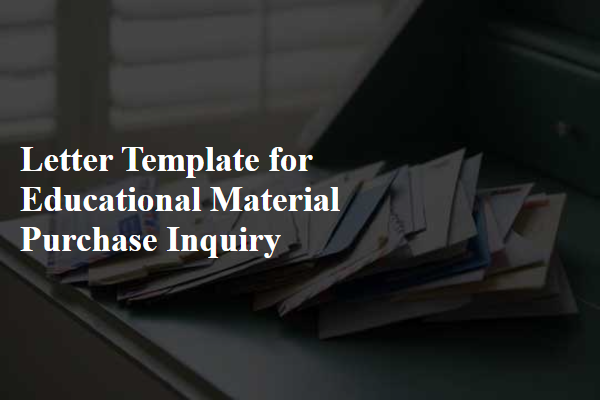
Formal greeting and recipient identification
Inquiries regarding educational material purchases can be addressed effectively by outlining specific requirements and desired outcomes. A formal greeting establishes professionalism, while identifying the recipient, such as a purchasing officer or account manager from a reputable educational supplier, is crucial for clarity. Consider including relevant details regarding the types of materials sought, such as textbooks, curriculum guides, or digital resources, along with the target educational level, whether primary, secondary, or higher education. Furthermore, specifying quantity requirements, budget constraints, or preferred delivery timelines can streamline the inquiry process, allowing for a more efficient response from the recipient.
Intent and purpose of the inquiry
Inquiries regarding educational material purchases often arise from the need to enhance curriculum offerings in schools or educational institutions. Specific materials such as textbooks, workbooks, and digital resources aim to improve student engagement and learning outcomes. Institutions may seek information about pricing, availability, and instructional alignment of these materials to state standards. Additionally, inquiries might focus on the evaluation of supplemental resources, such as online platforms and interactive tools, which can facilitate differentiated learning approaches for diverse student populations. Understanding the terms of purchase, including bulk discounts or subscription models, is vital for decision-making processes among educators and administrators.
Detailed description of educational materials needed
Inquiring about educational materials such as textbooks, workbooks, and digital resources relevant to the curriculum standards of the local education system is essential for effective teaching. Specific titles may include "Mathematics for Elementary Educators" which covers number theory and problem-solving strategies, and "The Science Explorer" series that introduces basic principles of biology, chemistry, and physics for middle school students. Additionally, teacher's guides providing lesson plans and assessment tools would enhance instructional strategies. Access to e-learning platforms, like "Khan Academy", offering video tutorials and interactive exercises is also crucial for supplementing classroom learning. Quantity estimates of 30 copies per title are anticipated, aligning with class sizes in local districts. Timely delivery and competitive pricing will be priority factors in the purchasing decision process.
Request for pricing, availability, and delivery options
Inquiries about educational materials often require specific details such as pricing, availability, and delivery options tailored for institutions like schools or universities. For example, a request for textbooks (such as "Mathematics for the Modern World"), student workbooks, or digital resources (like e-learning subscriptions) must specify the desired quantity (e.g., 100 copies) and relevant publication dates (new editions might be preferable). Educational institutions, located in areas like New York City or Los Angeles, may also need varying delivery timeframes (standard shipping or expedited options), facilitating a timely acquisition aligned with academic calendars. Additionally, understanding any volume discounts or special pricing for bulk orders is crucial for budget planning within educational budgets, which are often constrained.
Contact information and closing remarks
Inquiring about the procurement of educational materials often involves clarity and directness. The request should specify items, quantities, and particular educational levels, such as kindergarten or higher education. Contact details, including email addresses and phone numbers, are crucial for a prompt response. Closing remarks should express appreciation for assistance, often including a wish for a timely reply to facilitate planning for the upcoming academic term. Such inquiries are vital in establishing beneficial partnerships between educational institutions and suppliers.

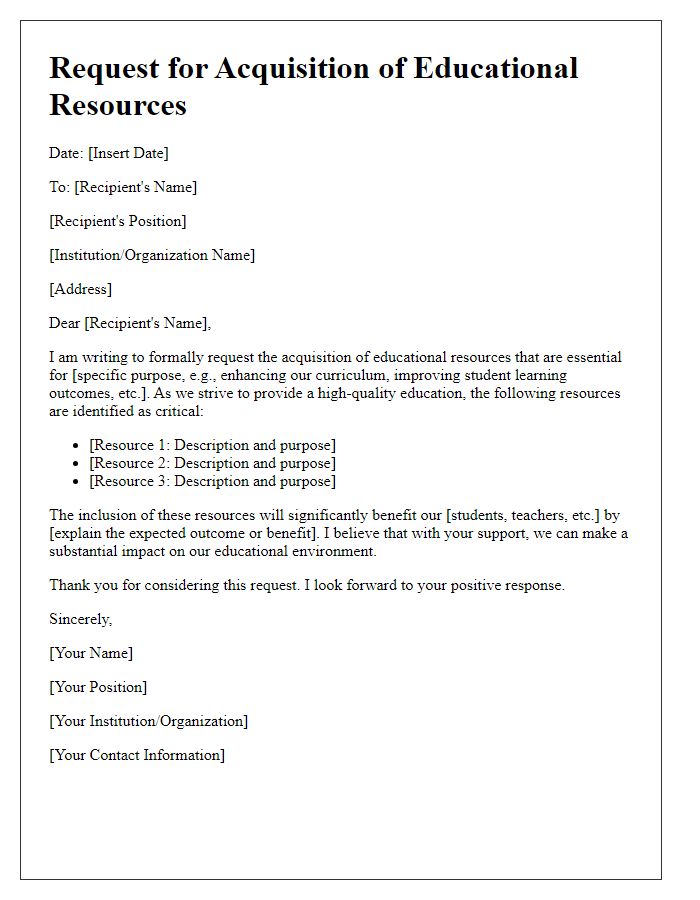
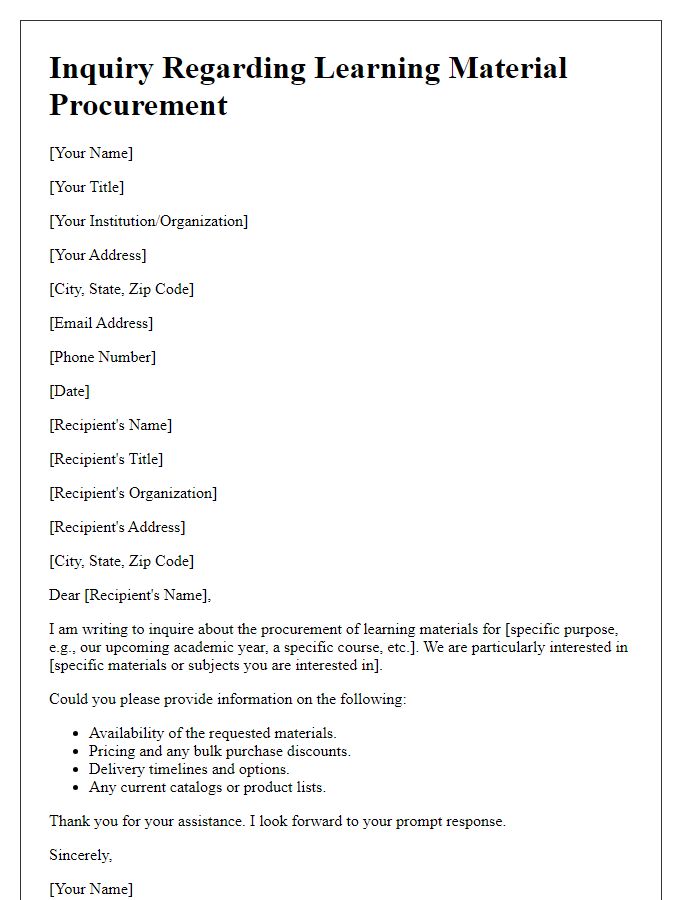
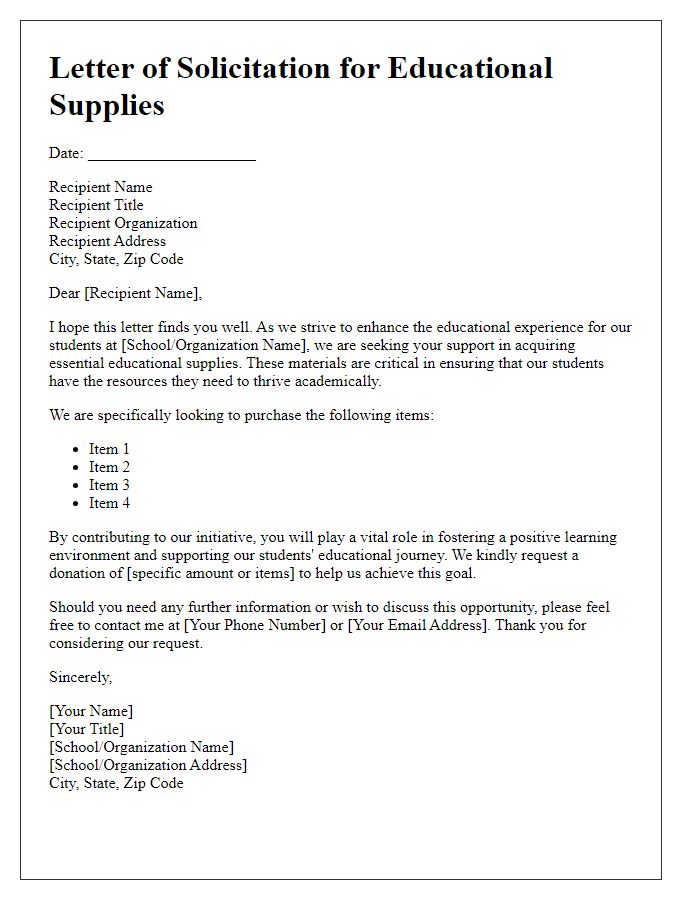
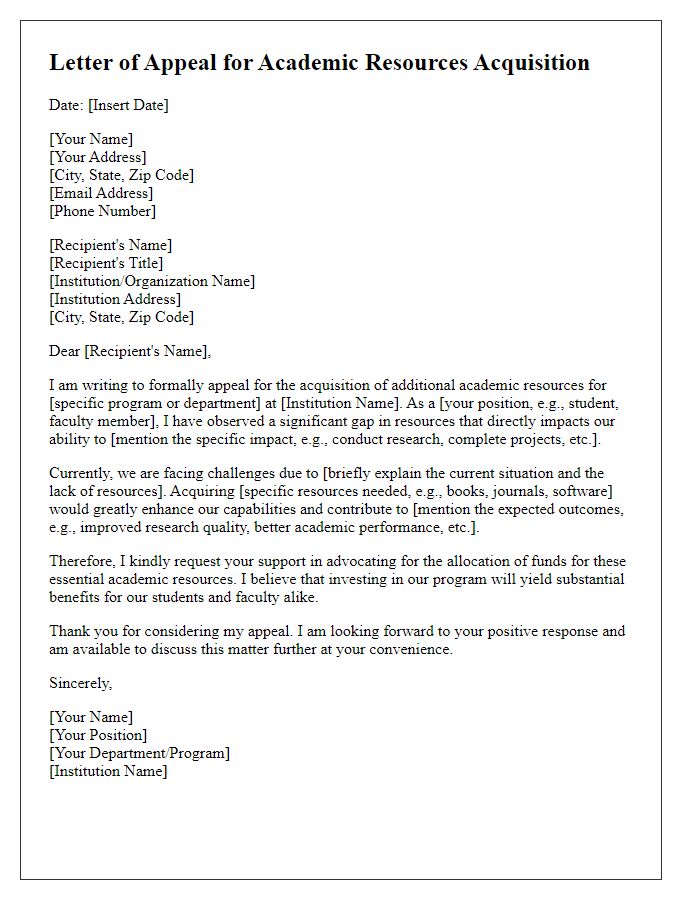
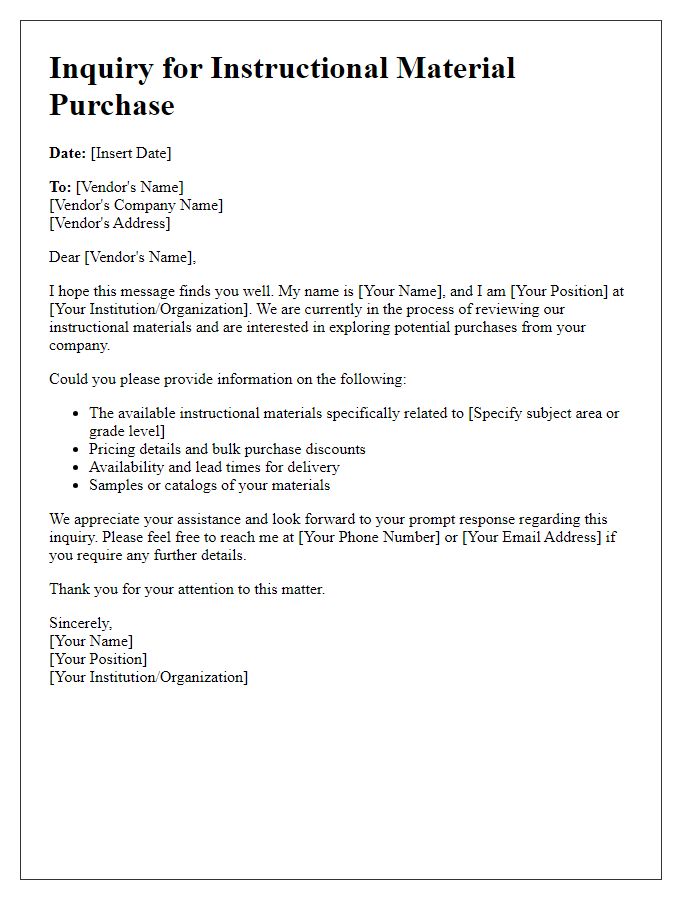
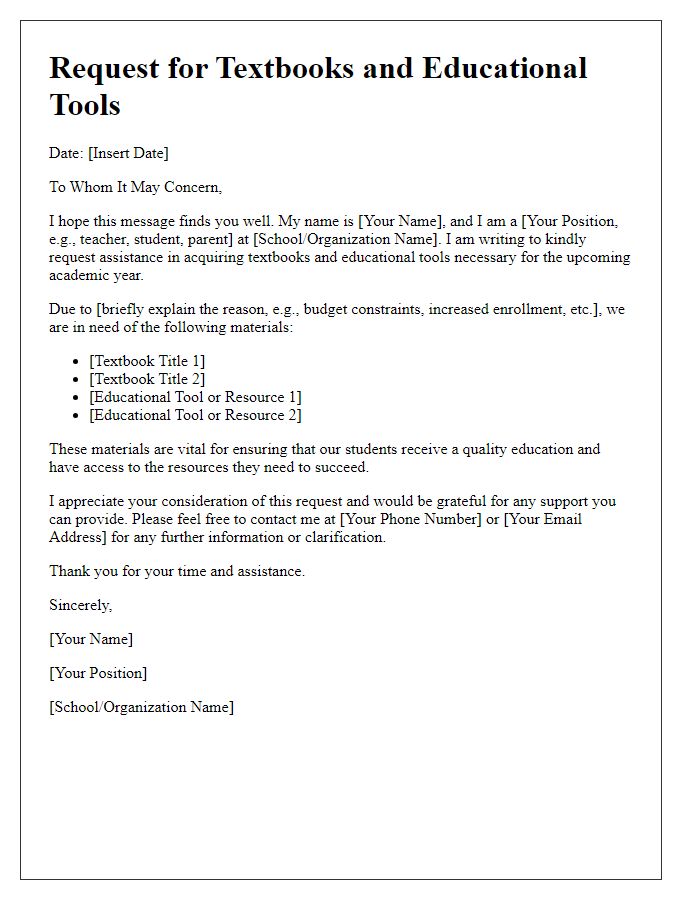
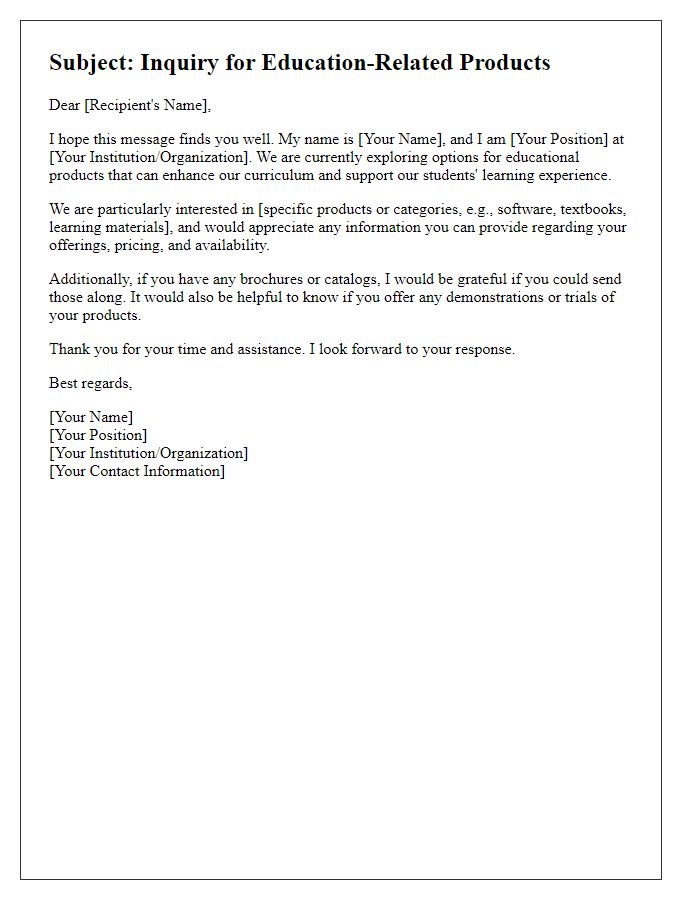
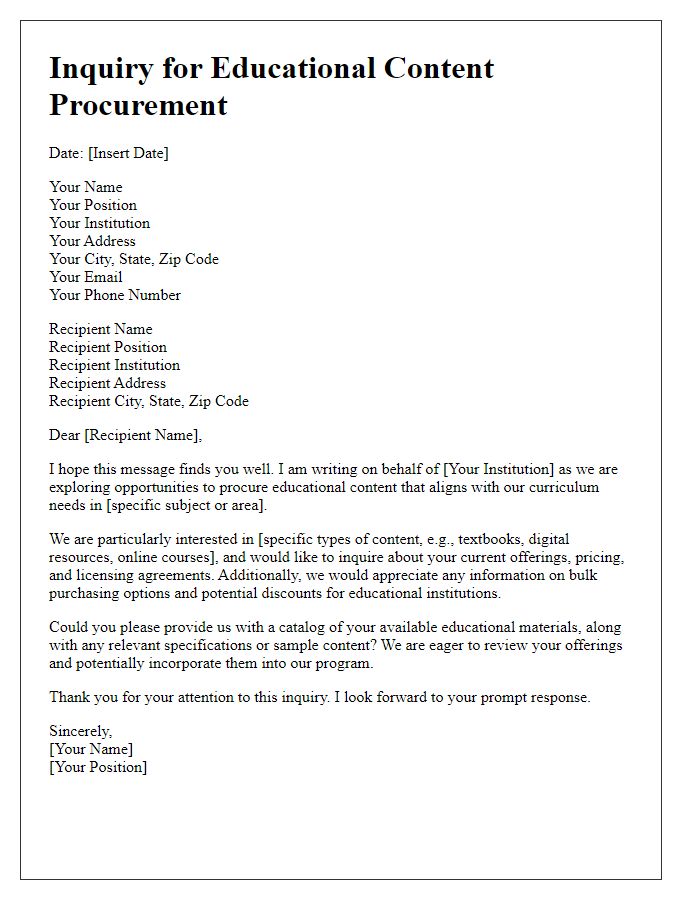
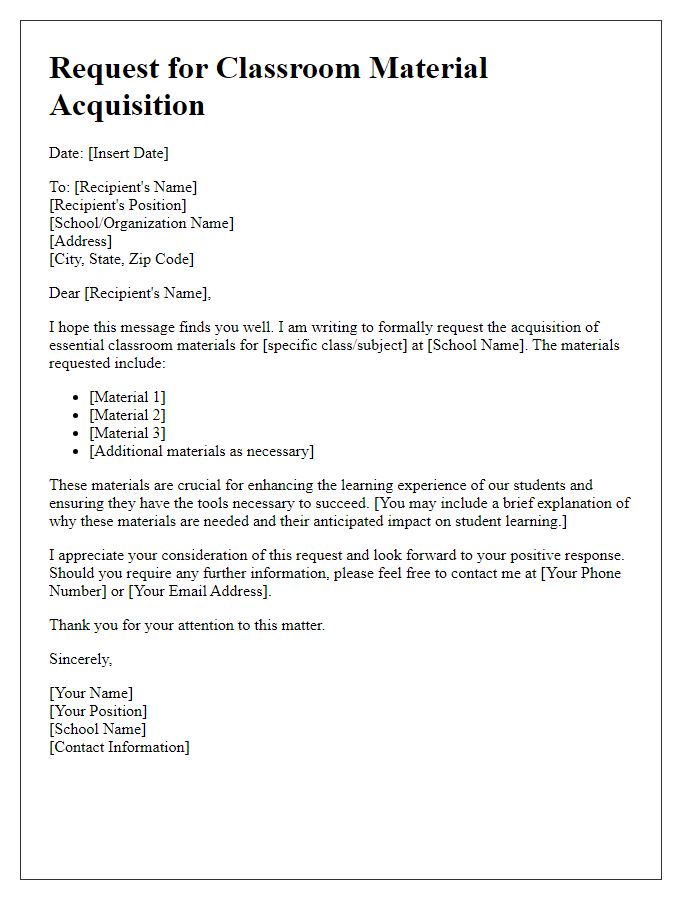
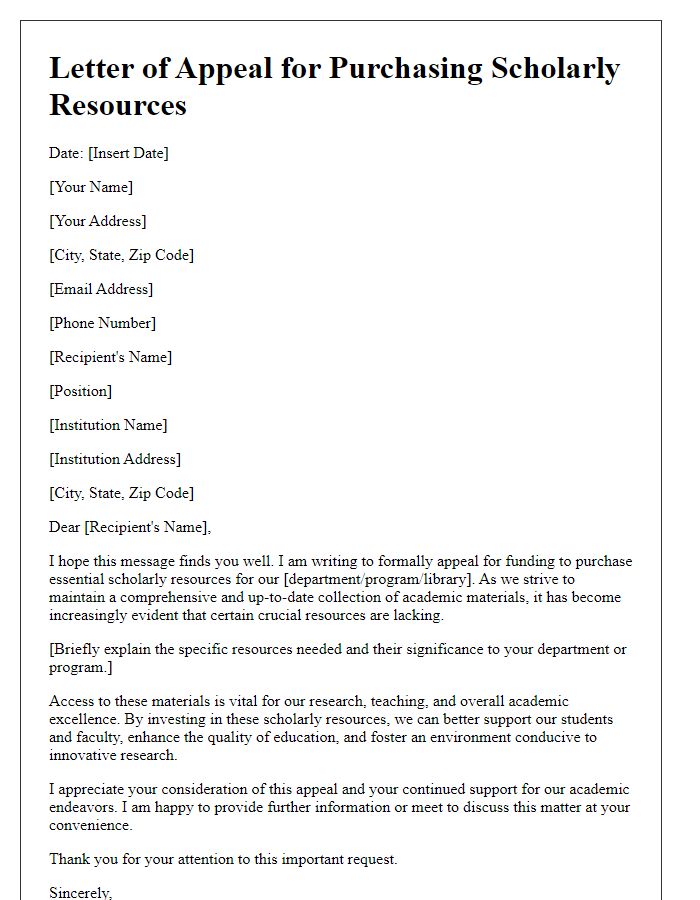


Comments